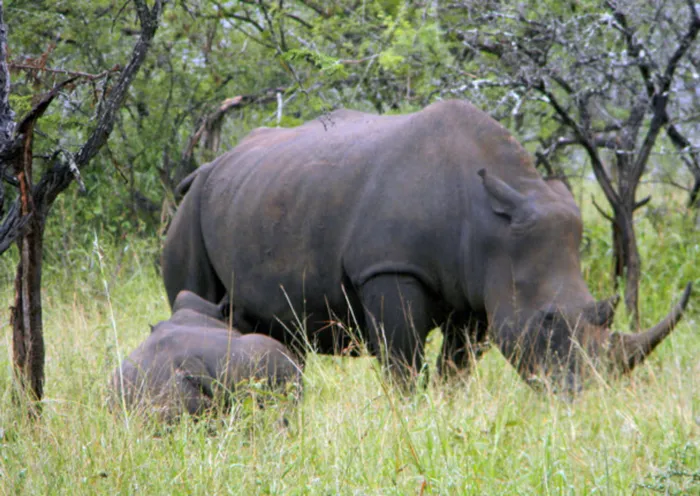SA to weigh rhino horn trade at Cites

Johannesburg - As the South African delegation head to the Convention on International Trade in Endangered Species of Wildlife and Fauna (Cites) conference in Bangkok next week, they’ll be listening out for one topic in particular: legalising the trade in rhino horn.
It’s not a popular proposal among conservation organisations like the WWF and Traffic, who are viewing such an approach cautiously, questioning how the mechanisms of the trade would work.
But the Department of Water and Environmental Affairs said it had to consider all solutions to halt soaring rhino poaching.
“The mandate given to us by the cabinet is not to close our ears to the possibility of trading (in rhino horn),” Water and Environmental Affairs Minister Edna Molewa told the media on Thursday.
The Cites’ Conference of the Parties (Cop) is an international gathering of governments held every three years to ensure that international trade in wild animals and plants does not threaten their survival. Legalising the rhino horn trade is not on the agenda at Cop16, but based on what Molewa’s team learn there, it could be tabled for discussion at Cop17 in 2016.
“There’s no one solution to poaching,” said biodiversity and conservation deputy director-general Fundisile Mketeni. “The fact is, the rhino horn trade is banned everywhere in the world, but we’re still losing rhinos.”
Rhino poaching rocketed by 43 percent last year, the International Union for Conservation of Nature said this week. Worldwide, 745 rhinos were killed in 2012 – and 668 of those were in South Africa.
So far this year, 128 rhinos have been poached locally. It’s an improvement from this time last year, said Mketeni, indicating that some anti-poaching efforts were paying off.
But it still meant the country was losing 1.5 rhinos each day, he said.
What will be up for discussion this year is Kenya’s proposed ban on the export of all hunting trophies from South Africa and Swaziland, a move that both countries and Cites itself will oppose.
Other hot topics include increased protection for certain shark species and African elephants.
Meanwhile, the South African delegation will be looking for potential trading partners – specifically those like Vietnam fuelling the demand for rhino horns. But the decision to back the trade actively has still not been made, insisted Molewa.
“We’re going to listen and gather as much information as possible,” said Molewa. “We’re doing the preparatory work now, without saying ‘yes, we want the trade’.”
Molewa also indicated that a decade after dropping a large section of the international border fence along the Kruger National Park’s eastern boundary, the government was now considering re-erecting it to stop poachers.
Molewa said her department had held bilateral discussions with Mozambique on poaching and steps to stop it.
“We are working on an MOU (memorandum of understanding) with my Mozambican counterpart, among other things to look at how we can co-operate on this issue (poaching).
“They are losing elephants in Mozambique; we are losing rhinos here. The transfrontier park that was agreed to, how do we deal with that? Do we keep the fence lowered or do we put it back up?” – The Star
* Additional reporting by Sapa